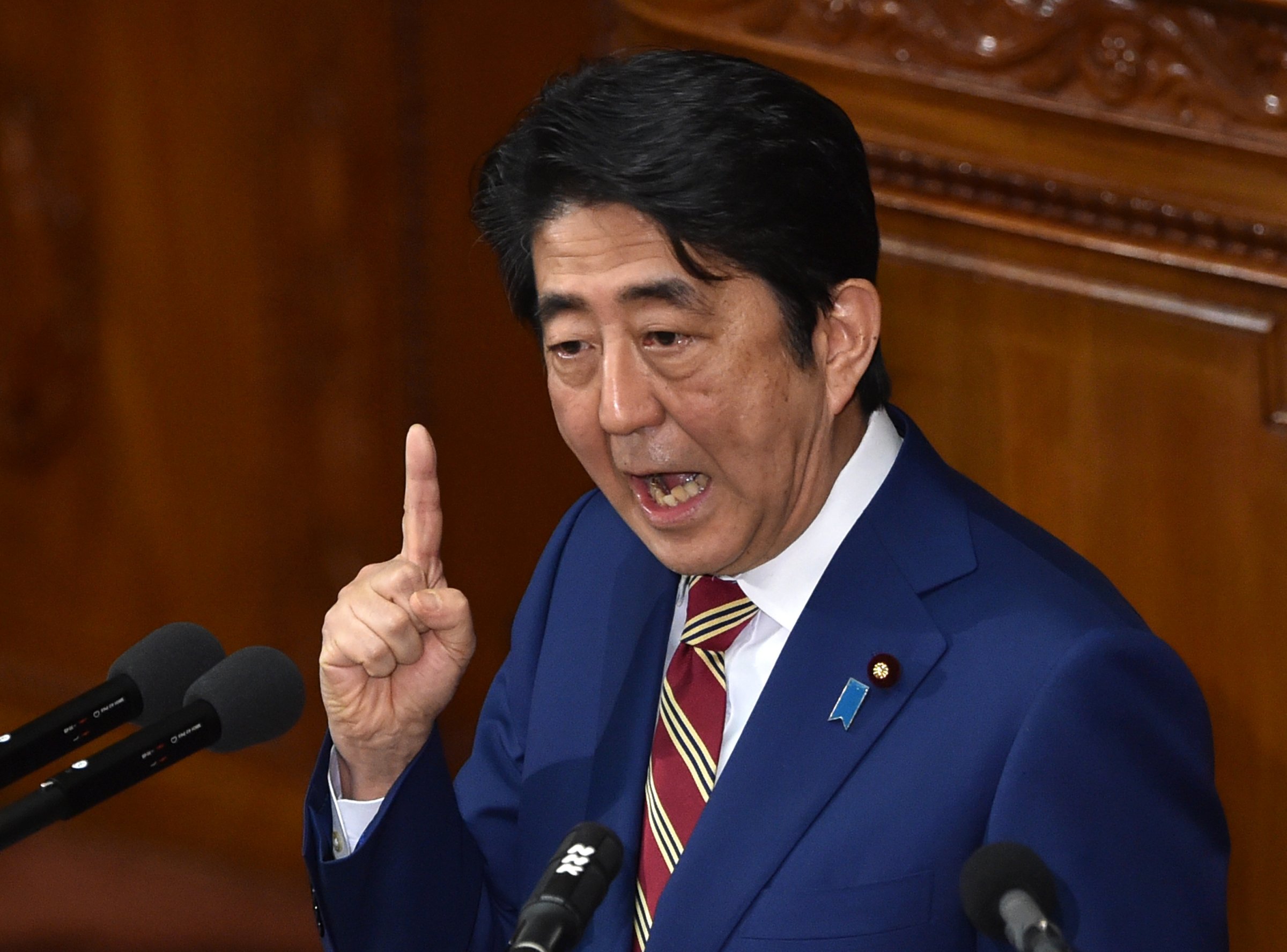
Allegations that Japanese Economy Minister Akira Amari accepted bribes from a construction company have sent shock waves through the country’s political class. Amari was a central player in Prime Minister Shinzo Abe’s economic-reform drive, known as Abenomics, and a key figure in the government’s bid to join the Trans-Pacific Partnership (TPP), an enormous trade pact. Then there was the unprecedented decision by Japan’s central bank on Jan. 29 to apply a negative interest rate to bank reserves, forcing banks to pay for money in reserves, and so encouraging them to get it into circulation.
Are these signs that reform and Japan’s economy are in trouble? Not likely. Although Amari has denied wrongdoing, he accepted responsibility for the alleged actions of his staff and resigned on Jan. 28. Government critics and Japan’s weak opposition will press for further investigations, but many recent opinion polls have shown a rise in Abe’s popularity, suggesting that even those who doubt Amari don’t blame Abe. Amari’s replacement, Nobuteru Ishihara, is a nine-term member of Japan’s lower house of parliament with plenty of useful experience as both a Cabinet minister and a leader in Abe’s ruling Liberal Democratic Party. He has some reformist credentials and is a solid choice for the job.
Abe will work to enact a budget by the end of March. Lawmakers are likely to ratify the TPP during the current Diet session, which will probably end in early June. Even if the Amari scandal lingers or it becomes clear that TPP ratification in the U.S. will have to wait for the lame-duck session of Congress after the election, Abe can probably still push the deal through this fall or early next year. He’s also likely to press his advantage over the opposition by calling a snap double election for both upper and lower houses of parliament in July and moving forward with an increase in consumption-tax rates in April 2017.
Then there’s that surprise from the Bank of Japan (BOJ). Analysts warn if negative interest rates don’t work–if, say, businesses fail to offer significant wage hikes–Abe’s reform drive could meet headwinds just in time for elections.
But Abenomics requires bold leadership, and with the rates decision, BOJ Governor Haruhiko Kuroda has demonstrated that he’s up to the job. The positive effects of the rate move will intensify over time as the bank increases asset purchases and expands the size of its reserves. Downward pressure on the yen will likely boost business and investor sentiment, and the Amari scandal will end up old news.
There’s no guarantee that these moves by Abe and Kuroda will finally kick-start Japan’s long-stalled economic engine. But a failure to take bold action will guarantee that reform will fail–with dire consequences for the third largest economy in the world.
More Must-Reads from TIME
- Why Trump’s Message Worked on Latino Men
- What Trump’s Win Could Mean for Housing
- The 100 Must-Read Books of 2024
- Sleep Doctors Share the 1 Tip That’s Changed Their Lives
- Column: Let’s Bring Back Romance
- What It’s Like to Have Long COVID As a Kid
- FX’s Say Nothing Is the Must-Watch Political Thriller of 2024
- Merle Bombardieri Is Helping People Make the Baby Decision
Contact us at letters@time.com